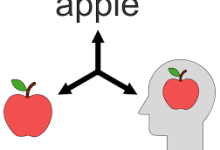The Importance of Phonetics
Phonetics is a branch of linguistics that focuses on the study of the physical sounds of human speech. It is concerned with the articulation, acoustic properties, and auditory perception of these sounds. As a foundational element of linguistic science, phonetics plays a crucial role in understanding language structure, acquisition, and communication. This article delves into the importance of phonetics from various perspectives, including its role in language studies, applications in technology, and its implications for education and communication.
Foundations of Phonetics
Phonetics is divided into three main subfields:
-
Articulatory Phonetics: This subfield examines how speech sounds are produced by the vocal apparatus. It studies the movements and configurations of the speech organs—such as the tongue, lips, and vocal cords—that generate different sounds. Understanding articulatory phonetics is essential for comprehending how different languages produce their unique phonemes (distinct units of sound) and for teaching accurate pronunciation in language learning.
-
Acoustic Phonetics: Acoustic phonetics focuses on the physical properties of speech sounds as they travel through the air. It involves the analysis of sound waves, including their frequency, amplitude, and duration. By examining the acoustic properties of speech sounds, researchers can better understand how different sounds are perceived and how they vary across different languages and dialects.
-
Auditory Phonetics: This subfield deals with how speech sounds are perceived by the listener. It explores the processes involved in hearing and interpreting sounds, including the role of the auditory system in distinguishing between different phonemes. Auditory phonetics is crucial for developing effective speech recognition systems and for understanding speech perception in both typical and atypical populations.
Phonetics in Language Studies
Phonetics is fundamental to various areas of language research:
-
Phonology: Phonetics provides the empirical data needed for phonological analysis, which investigates how sounds function and pattern within a particular language. By studying the physical properties of speech sounds, phonologists can identify and describe phonemes, allophones (variations of a phoneme), and the rules governing sound patterns.
-
Dialectology: The study of regional and social variations in language, known as dialectology, relies heavily on phonetic analysis. By examining differences in pronunciation across dialects, researchers can trace linguistic changes and understand how social factors influence language use.
-
Historical Linguistics: Phonetics helps historical linguists reconstruct the phonological systems of ancient languages and trace the evolution of sound changes over time. This historical perspective is vital for understanding the development of modern languages and their relationships with one another.
Applications in Technology
Phonetics has numerous practical applications in modern technology:
-
Speech Recognition: Phonetic principles are integral to developing speech recognition systems, which convert spoken language into text. By understanding the acoustic and articulatory characteristics of speech sounds, engineers can design algorithms that accurately recognize and process human speech.
-
Text-to-Speech (TTS) Systems: TTS systems use phonetic knowledge to generate natural-sounding speech from written text. These systems rely on phonetic transcriptions to produce intelligible and expressive synthetic speech, which is increasingly used in various applications, including virtual assistants and accessibility tools.
-
Forensic Phonetics: This specialized field applies phonetic analysis to legal contexts, such as speaker identification and voice analysis in criminal investigations. By examining unique characteristics of a person’s voice, forensic phonetics can provide valuable evidence in legal cases.
Educational Implications
Phonetics has significant implications for language education:
-
Language Teaching: Phonetic knowledge is crucial for teaching pronunciation and accent reduction. Language educators use phonetic principles to help learners produce sounds accurately and understand the phonetic differences between their native language and the target language.
-
Literacy Development: Phonetics plays a key role in literacy education, particularly in teaching reading and writing. Phonemic awareness, the ability to recognize and manipulate individual sounds in spoken language, is essential for developing decoding skills and understanding the relationship between sounds and letters.
-
Speech Therapy: Phonetic analysis is central to speech-language pathology, where it is used to diagnose and treat speech disorders. Therapists use phonetic techniques to assess and improve articulation, fluency, and other aspects of speech production.
Cross-Cultural and Global Perspectives
Phonetics also contributes to our understanding of linguistic diversity and intercultural communication:
-
Cross-Cultural Communication: Phonetic research helps bridge communication gaps between speakers of different languages and dialects. By analyzing how sounds are produced and perceived across cultures, phoneticists can develop strategies to improve mutual understanding and reduce miscommunication.
-
Language Documentation: Phonetics is essential for documenting endangered languages and preserving linguistic heritage. Accurate phonetic descriptions of rare and under-studied languages contribute to the preservation of linguistic diversity and support revitalization efforts.
Challenges and Future Directions
Despite its many contributions, the field of phonetics faces several challenges and opportunities for further development:
-
Variation and Complexity: Speech sounds exhibit considerable variation across different speakers and contexts, making it challenging to develop comprehensive and universally applicable models of phonetic behavior. Ongoing research aims to address these complexities and refine our understanding of sound production and perception.
-
Technological Advancements: As technology continues to evolve, phonetics will need to adapt to new developments in speech processing and analysis. Advances in artificial intelligence and machine learning offer exciting possibilities for enhancing phonetic research and applications.
-
Interdisciplinary Collaboration: Phonetics intersects with various other fields, including psychology, neuroscience, and computer science. Collaborative efforts across these disciplines can lead to new insights and innovations in understanding and applying phonetic principles.
In conclusion, phonetics is a vital field of study that underpins many aspects of linguistic research and practical applications. Its importance extends from the basic understanding of how speech sounds are produced and perceived to the development of advanced technologies and educational practices. As we continue to explore the complexities of human speech, phonetics will remain a cornerstone of linguistic science and a key contributor to our understanding of language and communication.




